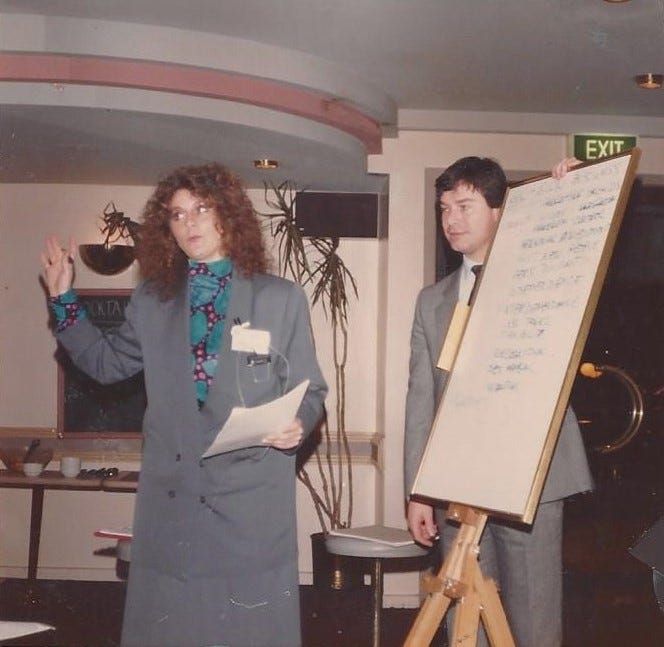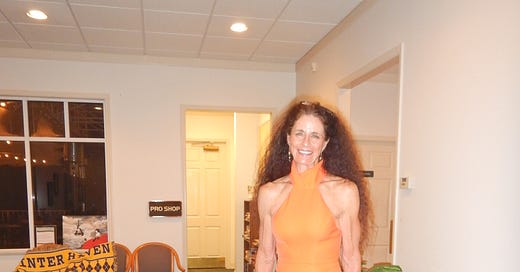The backhanded compliment that isn’t a compliment at all
You and I are Too Old to take dumb or outright ugly- comments about our age seriously.
Because, seriously? It’s the one thing about which we can do absolutely NOTHING. Time only goes in one direction.
We all age. How you and I age is why I am writing these articles: to protect the integrity and joy we’ve earned for our Third Act.
The insults people hurl at each other about their aging process can do terrible damage. Ageism is pure age hate, rooted deeply in Westerners’ unreasonable fear of death, dying and decrepitude.
Depression, which is one of the handmaidens of aging and ageism in America, is often the result of isolation. It also comes from the rank ageism and daily insults hurled at us for simply having lived long enough to look older.
The way we fight back is through resilience and building perspective, as well as creating community around us to buffer the effects of widespread ageism.
Too Old for This Sh*t is dedicated to building those skills.
This article is the first of many to address this, and how to retake your agency. The quality of our aging process is ours to determine.

Here’s what I mean:
My first Substack post wasn’t up for an hour before someone wrote that I “looked good for my age.”
OH FER CRYIN’ OUT LOUD.
Bet you’ve heard that kind of thing, too. Starts out sounding good, then it lands like a backhanded slap.
For an old broad, you’re doing all right, sister.
Or another fave of mine:
You must have been amazing …in your prime.
In other words, you sure look like crap now, you grey ancient.
None of these swipes are about us. They stem from someone’s deep internal demons, the fear they carry about their own demise.
First, a little context about why I might have some serious expertise about how we wield our words.
Words are incredibly powerful. Let’s talk about that.
Thirteen years ago this month, I published a triple prize-winning book called Wordfood: How We Feed or Starve Our Relationships.
My book shows just how powerful our words are when used to grace, uplift and energize ourselves and others. I also addressed Toxic Wordfood, which is akin to sprinkling arsenic on your apple pie.
Wordfood begins with the story about how I lost eighty-five pounds in one year, thirty-five years ago. Back then, I had no idea how much harm I was doing to myself with my internal conversation.
The mirror was my enemy and my body paid the price.
Like many of us I came from an abusive household. My family attacked my body for every ounce of fat I gained, so I learned self-revulsion at home. Many of us do.
It was 1988. I was living in Elsternwick, near Melbourne, Australia. When I ran my two miles, I left cracks in the sidewalk.
I tipped (broke, like the sidewalks) the scales at nearly 210 lbs.
Among other ripe insults, I used to call myself a “fat pig.” Then I’d stuff my face all day with donuts and fish and chips. Natch, that reinforced my negative self-image. The fatter I got, the madder I got at my body.
You dance pretty well for a fat girl.
Bet some of you can relate.
Words like that chop us up better than Paul Bunyan with a Black and Decker.
Then there’s this:
So some Aussie wiseguy told me that if I couldn’t get the weight off by thirty, I’d be fat forever.
Okay, so two things. Sometimes words like this can be a prime motivator.
I love a gauntlet. Nothing gets my dander up like a challenge.
Second, I really was kinda scared that wiseguy might be right. Holy crap. What if he is?
Back then we didn’t know what we know today about what we can do with our health even, very late in life.

But first I had to change my internal conversation. If that doesn’t change, not much else does.
I did precisely that. Then I steadily dropped 85 lbs and have kept it off for 35 years.
I no longer berate my body for being where it is, no matter what might look like. This is a skill you and I can build. As we age, it’s even more essential given the many -isms we have to navigate in our society.
Back to today, and how learning to speak to myself with respect changed a lot more than just my body.
I’m seventy. The last twelve years I’ve climbed huge mountains, kayaked the Arctic, ridden spicy horses all over the world. Sun, wind and life have carved a thousand stories on my face. Stories I’m very proud of, frankly.
I’ve earned this face. This body.
Then, lots of injuries from adventure travel led to lots of surgeries, then Covid. I “found” 25 pounds. Familiar?
I’ve always wondered about “losing weight.” We seem determined to find it again. In my case, someone else appears to have found the pounds I lost. I sincerely hope they’re happy with them; I’m happy to re-home any extras.
Look. We don’t get fat because we age, we get fat because we change our habits.
A little extra fat, which is a critical organ, is helpful to healing. Twelve surgeries in five years? Yeah. A little extra during such a high stress time protects your health. In this regard, fat is as essential as your lungs and heart.
But here’s the magic sauce:
This time around I didn’t get spiteful at my body. Of course I missed my six-pack. And:
I was twice as old, my hair was greyer, my face more wrinkled. Now I have dentures, right?
My bathroom mirror was a target-rich environment.
But I didn’t take aim. I’ve learned the power of the internal dialogue. I don’t weaponize words at my body that way any more, and neither should you.
I view my body now with love, appreciation, humor and kindness. Oh the adventures we’ve seen. The life we’ve lived, keep living. Who is anyone else to attack that statement of a long life? Who is anyone else to rip out your pride with ill-disguised insults about your age, the single thing we all share?
Your best protection against such ageism is an acute appreciation for the body which has served you all these years.
Here’s a fine primer to get you started:
Read Bill Bryson’s wonderful The Body: A Guide for Occupants.
It isn’t just that the book is a fantastic education about the skin suit we inhabit and how it all works often in spite of our repeated insults. Cheetos and Mountain Dew anyone?
You may well come away with a new respect for your inner workings, and finally be able to commit to the kind of nutrition and exercise programs which will best ensure an option-filled Third Act.
Love the body you have. If you were born with a round body on skinny pegs, or a big tall body with thick sticks, or any of eight billion variations on a theme, shy of major reconstructive surgery, this is the clay we get to mold.

Above all, what our body deserves, most particularly as we age, is the undying respect for the miracle that it is. When we know we are a miracle, then we are truly unassailable.
Why is the weight loss story relevant? When I stopped berating myself, the body responded. Developing a keen appreciation for the body we inhabit becomes a kind of armor, armor all of us need in a society that deeply dislikes proof of aging.
Let’s go back to Mr. Backhanded compliment. We all get them. The older we get, the more they’re hurled at us.
You and I are Too Old to let others’ vitriol ruin your confidence.
As we get our fifties and beyond, age is challenge enough. A well-lived life is far more about health, strength and VO2 capacity. Not whether we look young. Let that train leave the station.
You look good….for your age.
You and I are Too Old to give that kind of comment any kind of credence. It’s an insult, plain and simple. Nothing whatsoever to do with you and me, either.
Build a Teflon boundary around yourself. Love the skin suit you inhabit. That way others’ thoughtless comments about aging become background noise you can easily ignore.

To that, my parting dart:
Doesn’t everything die at last, and too soon?
Tell me, what is it you plan to do
with your one wild and precious life?
-From “The Summer Day“ Mary Oliver
Let’s protect our wild and precious lives from those who are too afraid to live theirs.
Thanks for reading.
Let’s play.
If you found this article invigorating, kindly consider subscribing now.
If you found this article helpful enough to pass along to someone, please do:
Even better, if you know someone struggling with aging, invite them along:





